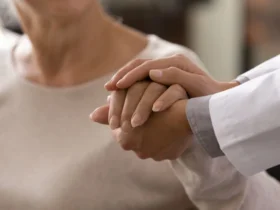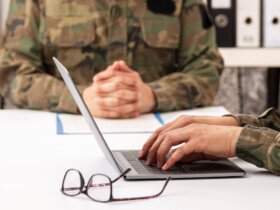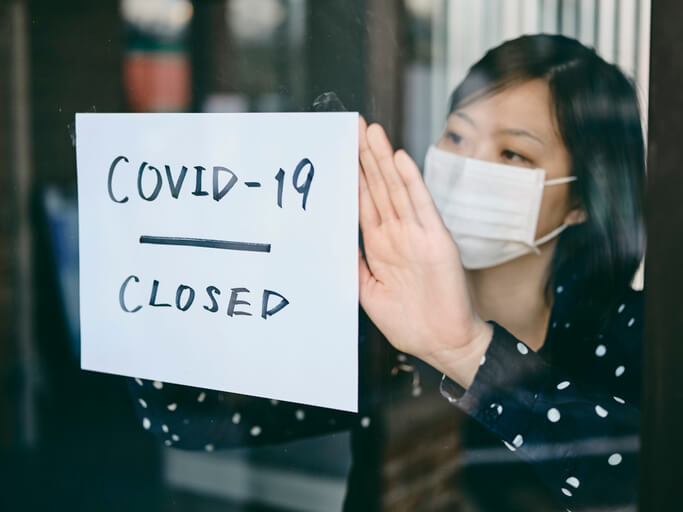Many people suddenly unable to work are now applying for Social Security disability. But does the government approve disability claims for people affected by the new coronavirus? Can people on disability benefits get paid more if they’re sick with Covid-19? Find the answers to frequently asked questions like these below.
“Coronavirus Shut My Job Down So I Can’t Work. Do I Qualify For Disability?”
Nearly 90% of Americans are currently under a shelter-in-place order from local or state governments. Unless you’re deemed an essential worker or can do your job remotely, you’re probably not earning a paycheck right now. If this happens to you, check with your state about applying for unemployment. Most states now let you apply for unemployment due to coronavirus if you are:
- Furloughed
- Laid off
- Temporarily laid off, but can get your job back when business reopens
- Self-employed or an independent contractor
The federal CARES Act provides an additional $600 per week in unemployment benefits to eligible applicants. However, these extra weekly payments automatically end on July 31, 2020. So if you lost your job due to coronavirus, don’t wait to apply for unemployment. It often takes 2-3 weeks to receive your first payment, so the faster you apply, the better. Learn more about the CARES Act’s unemployment provisions on the Department of Labor’s website.
That said, the Social Security Administration will not pay disability benefits just because you stopped working due to coronavirus.
“Am I Eligible for Social Security Disability If Coronavirus Makes Me Sick?”
Covid-19 (the illness caused by coronavirus) is different for every person who tests positive. For some people, it’s much like having a cold or mild flu symptoms. Others end up in the hospital’s ICU ward for several weeks, assuming they can survive it. It’s a terrible illness, and if you do get sick with it, going to work puts others at risk. Many people are struggling financially right now, even the ones who think they’re sick from coronavirus exposure. But does the federal government consider coronavirus-related symptoms eligible for disability? Here’s what we learned, and what you need to know before you apply:
- The SSA’s website doesn’t have any guidelines on applying for disability due to coronavirus.
- Coronavirus and Covid-19 don’t appear anywhere in their List of Impairments for Social Security disability.
- Neither suspected coronavirus symptoms or positive Covid-19 tests prove you’re unable to work for at least 12 months.
If you aren’t already aware, the eligibility requirements for Social Security disability are about much more than just your symptoms. Your work history, age, educational background and much more all play a role in deciding whether or not you qualify for SSD.
“I’m Already On Disability & Tested Positive For Covid-19. Can I Get More Money?”
Unfortunately, no. Many people wrongly believe they deserve to get paid more disability money when their situation gets worse. But the truth is, the government uses the same formula to calculate every person’s maximum disability payment:
- Take the highest monthly paychecks you earned while working.
- Average them together, then adjust that amount for current inflation.
- Your monthly benefit payment should equal about 40% of that last number. This is true whether you’re getting disability benefits or regular Social Security retirement.
In 2020, the average national Social Security disability payment is currently $1,258 per month. The only things that can make your disability payment amount go up are:
- Going back to work and paying additional Social Security taxes with every paycheck you earn.
- Claiming benefits through your current or former spouse, if applicable. (You must be at least 62 and currently receive less than you would filing on the eligible spouse’s work record.)
- An annual cost-of-living-adjustment (COLA) increase in years when the federal government approves it. For example: The government approved a 2020 COLA increase of 1.6%, which went into effect with January’s payments.
- Apply for state-based disability benefits if you live in California, Hawaii, New Jersey, New York, Rhode Island or Puerto Rico. These are the only U.S. states (and one territory) that administer their own disability benefit programs for residents.
You May Qualify for Legal Assistance
Right now, every Social Security office in America is closed due to coronavirus outbreaks nationwide. The SSA is warning people not to call their 1-800 number unless it’s absolutely necessary. When you call, expect to stay on hold at least 90 minutes before speaking to an actual person. Considering everything else that’s going on, what’s the best way to apply for disability benefits right now? Having a lawyer file your disability claim makes you 3x more likely to get benefits the first time you apply.
Every Social Security lawyer offers contingency-based legal assistance. That means you can get a free, no-obligation consultation and expert help applying for disability benefits. Once you complete your online evaluation, you’ll get a phone call from a local disability advocate within one business day. You don’t have to go anywhere or put your own health at risk to get this legal assistance. Best of all, if the government doesn’t award you disability benefits, you owe $0 for legal assistance. And if you do win a lump-sum back payment, then you’ll only pay a small, one-time fee.
Ready to see if you may qualify? Click the button below to start your free online benefits evaluation now:
Get Your Free Benefits Evaluation
Lori Polemenakos is Director of Consumer Content and SEO strategist for LeadingResponse, a legal marketing company. An award-winning journalist, writer and editor based in Dallas, Texas, she's produced articles for major brands such as Match.com, Yahoo!, MSN, AOL, Xfinity, Mail.com, and edited several published books. Since 2016, she's published hundreds of articles about Social Security disability, workers' compensation, veterans' benefits, personal injury, mass tort, auto accident claims, bankruptcy, employment law and other related legal issues.

















